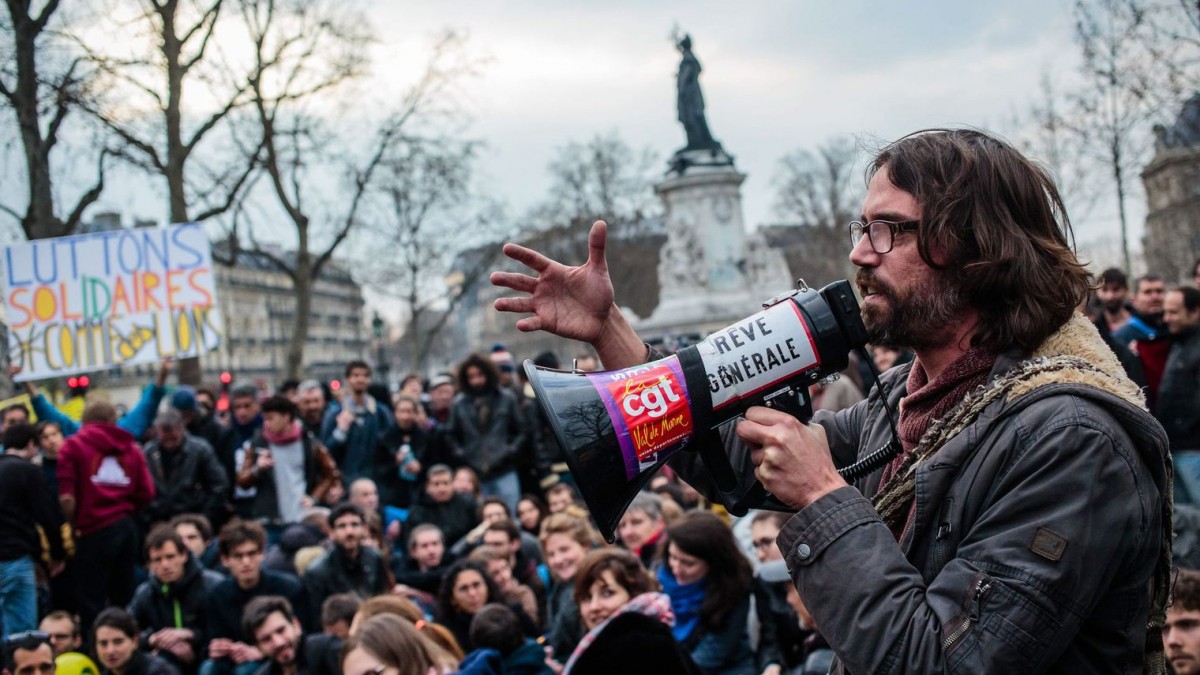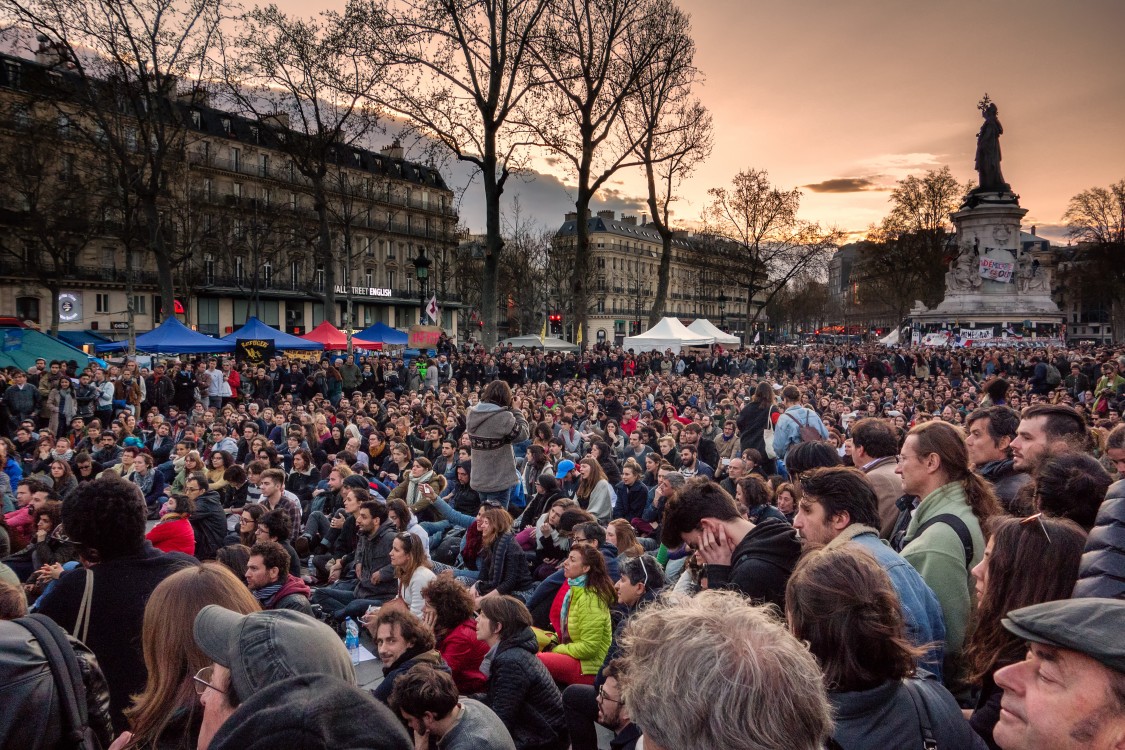
This is the final installment of a five-part series, "Cracks In Capitalism," looking at examples where the old neoliberal model shows signs of crumbling under the weight of new economic, social, political and ecological pressures. Read parts I, II, III and IV.
“Across France we are building a non-hierarchical network, and this is new,” explains Jan Sitka, who is part of the media team of Nuit Debout, the French movement of the squares that is now nearly three months in the making.
Since its first evening in Paris's Place de la République on March 31, Nuit Debout continues to stay "up all night," as the name implies. It may have fallen from international mainstream media attention, but the movement is both reshaping France and showing the evolution of post-2008 global democracy movements.
Cities and towns across France continue holding assemblies and working in participative commissions on social justice issues. The movement has spread to Belgium and Germany and has caused the re-occupation of Spanish Plazas. It has spread across France on a similar scale that 15 million did across Spain in 2011.
A government bill attacking workers' rights sparked Nuit Debout, but the labour law reform was just the straw that broke the camel’s back. France’s problems reflect those across most Western countries, including high youth unemployment, increasing job precarity and the capitulation of once left-wing parties. Endemic corruption, revealed on a global scale by the Panama Papers, was also a factor. (The leaks catalyzed, rather than caused, Nuit Debout since they were released after squares were first taken.) But what is even more remarkable is the precise political climate within which this movement emerged.
France has suffered two major terrorist attacks in 18 months. Since, it has embraced the doctrine of the War on Terror – which, as we now know, has a way of feeding further terrorism. France has intensified military actions in Syria and Iraq. At home, the government has declared a state of emergency, with measures including banning protests and placing people under house arrest without trial. Freedoms are removed in the name of protecting freedom.
Sitka at Nuit Dubout explains how the public mood has shifted immensely toward favoring powers of the police and the state. In December, after an incident in which police used tear gas to attack climate protesters, who were demonized in the media for retaliating by throwing candles, a new narrative took hold about the good and bad protester. This time, the latter was spoken about in the same terms as terrorists. The police won public sympathy, since some law enforcement members had died during the terrorist attacks, and this dampened what would have been more widespread condemnation of the violence employed during the state of emergency.
At the beginning of Nuit Debout, Sitka recalls “the police violence was strong and there was an internal debate, as they still had a positive image. [But] eventually the public realized they were disproportionately attacking their own young people. It was a real cultural shift.”
Now, with the Euro 2016 football competition underway in France, strikes against the labour law reform are escalating. These have likewise been dealt with violently by the state, and this time the news hit international headlines. But those stories often neglect to connect the dots with Nuit Debout, which is playing a role in the effort to unite union organizers and build toward a general strike in the country. Nuit Debout is also pushing for a Europe-wide strike against attacks on workers’ rights.
Sitka said Nuit Debout has been sidelined in the French media establishment, which focused on how the movement is feeding into union and traditional left politics, but missed the way it is reshaping France’s broader political ecosystem. This is not to say that Nuit Debout is merely France’s Pots and Pans Revolution (Iceland), its 15M (Spain) or its Occupy (U.S.). It is both distinctive and an evolution of all of those movements.
In the occupying sense, one crucial change is that the square is packed away every night – a tactically smart move that prevents the police from "evicting" Nuit Debout. Sitka said this strategy also disables some people from capitalizing on the added sense of authority and power that comes with camping overnight. On the other hand, it also creates more work rebuilding structures and adds certain complexities, especially to communications.
But initial challenges in online communication also led to one Nuit Debout’s greatest innovations. According to Sitka, French activists use twitter and email far less than the Spanish activists of 15M. From the start of Nuit Debout, the French instead started using Telegram, an open-sourced version of WhatsApp, which comes with more security than Facebook messages or email. Telegram, which creates groups organized by location or focus theme, was quickly rolled out so that the majority of Nuit Debout groups, or commissions, use it for communication. The groups are all 200 people or less; therefore, unlike email threads, you can see who is the audience, and non-active users are cleared off the lists.
This innovation alone has opened up the movement, by reducing the ability of gatekeepers to hold special positions, or for communication to rely on friendship bonds. It has also made time-inefficient mass email lists almost irrelevant. For the media team, this means their message can be shaped with wider participation – both input through digital and input on the squares. From the start of Nuit Debout, said Sitka, digital tools and online developers were at the forefront creating the digital infrastructure to network the movement.
The revolution may not be televised – but on the square in Paris, it is being networked.
3 WAYS TO SHOW YOUR SUPPORT
- Log in to post comments

















